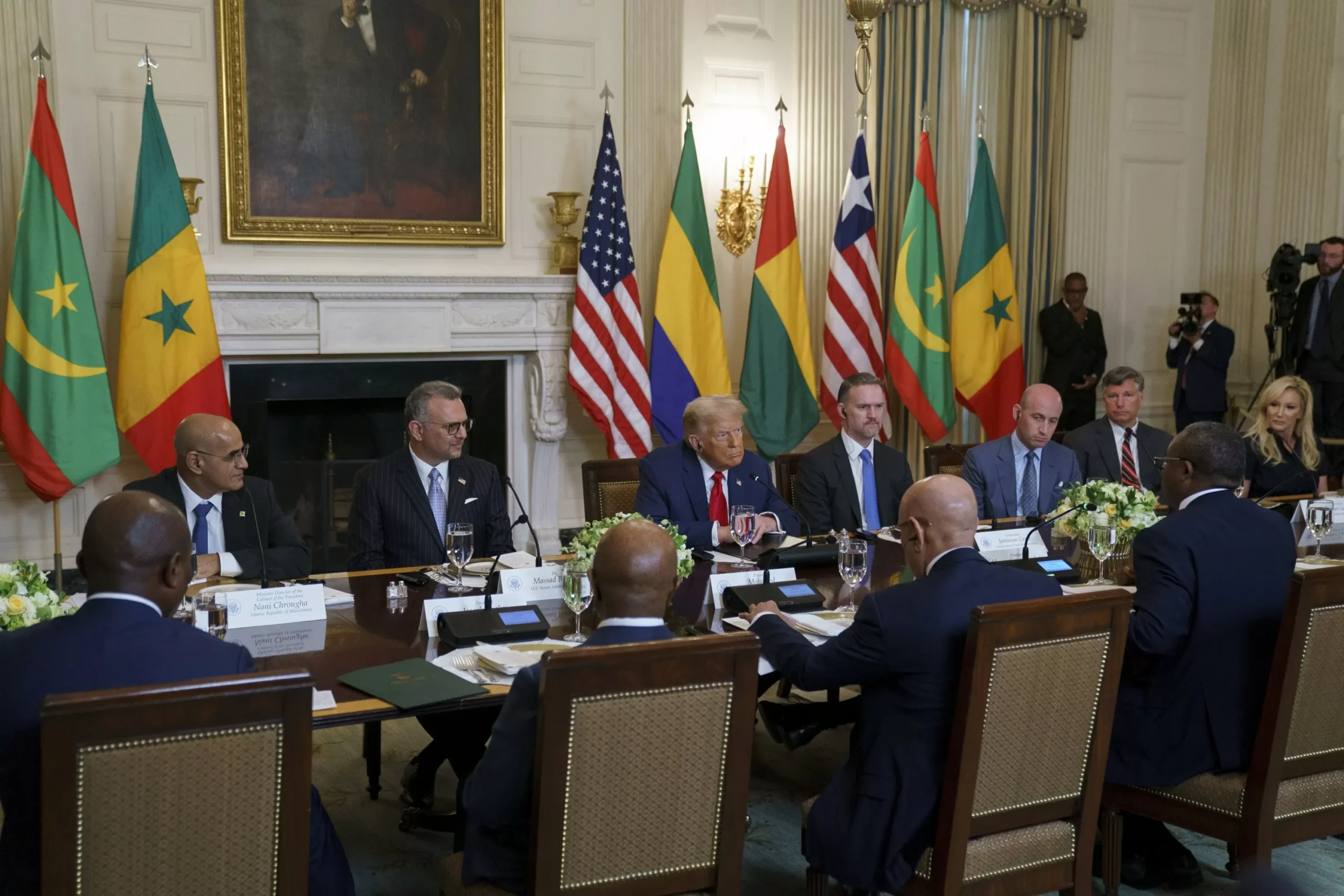U.S. President Donald Trump is hosting a surprise lunch with five West African leaders on Wednesday, in a move that is being seen as a sign of support for the region amidst recent aid cuts and restructuring by the U.S. government.
The lunch, which will take place at the White House, will be attended by the leaders of Senegal, Cote d’Ivoire, Ghana, Guinea, and Nigeria. This surprise meeting comes as a welcome gesture to these countries, who have been facing uncertainty and challenges in the wake of major aid cuts by the U.S. and changes in foreign policy.
The decision to host this lunch was made by President Trump himself, who has been vocal about his support for Africa and his desire to build stronger relationships with the nations on the continent. This lunch is a clear indication of his commitment to strengthening ties with West African countries and reaffirming the partnership between the U.S. and Africa.
These five leaders, who represent some of the most influential and powerful countries in West Africa, will have the opportunity to discuss a wide range of issues with President Trump. This includes trade and investment opportunities, security concerns, and ways to strengthen economic cooperation between the U.S. and the region.
One of the main topics of discussion is expected to be the recent aid cuts by the U.S. government. The decision to reduce aid to many African countries has been met with mixed reactions, with some seeing it as a necessary step towards promoting self-sufficiency and accountability, while others view it as a detrimental move that will only increase poverty and instability in the region.
However, with this surprise lunch, President Trump is sending a message that the U.S. remains committed to supporting and partnering with West African countries. This gesture is a welcome change for these nations, who have been struggling to cope with the sudden loss of funding for vital programs and projects.
Furthermore, this lunch provides an opportunity for these leaders to share their perspectives and concerns directly with President Trump and his team. This personal engagement will allow for a deeper understanding of the challenges faced by these countries and a chance to find solutions that benefit both sides.
In recent years, trade between the U.S. and Africa has been steadily increasing, with West Africa being a key player in this growth. With the potential for even stronger economic ties, this lunch presents an ideal platform for discussions on how to further improve and diversify trade and investment opportunities.
The lunch will also allow for discussions on security cooperation, especially in the fight against terrorism and extremism. As West Africa continues to face threats from terrorist groups like Boko Haram and Al-Qaeda, it is crucial for the U.S. to maintain its support for the region in countering these threats.
In addition to these important discussions, the lunch will also serve as a symbol of the strong friendship between the U.S. and West Africa. This meeting of minds and exchange of ideas will deepen the bonds between these nations and pave the way for even stronger diplomatic relations in the future.
President Trump’s decision to host this surprise lunch with West African leaders is a positive step towards strengthening the U.S.’s relations with the region. It shows a willingness to listen and engage with these nations, and to work together towards common goals and interests.
As the lunch takes place, it is an opportune moment for the U.S. to reaffirm its commitment to supporting the development and progress of West Africa. It is also a reminder for the international community that the U.S. continues to be a valuable partner in Africa’s growth and prosperity.
In conclusion, the surprise lunch hosted by President Trump with five West African leaders is a significant and positive development in U.S.-Africa relations. It not only demonstrates the U.S.’s commitment to the region, but also provides an opportunity for meaningful discussions on important issues. As these leaders sit down for lunch at the White House, it is a promising sign of a stronger and brighter future for the U.S. and West Africa.





![Complete BritRail Pass Guide [Types, How to Use It, Pros + Cons]](https://inside-news.uk/wp-content/uploads/2025/06/00221EB4-BCA2-4DBB-6CD4-83DBC37D71FA-120x86.webp)
















